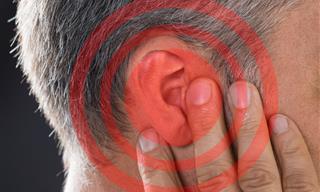In our childhood, we were all taught that being nosy is bad, and though it may be true on a metaphorical level, having a sharp sense of smell may benefit not only those who like perfume or go to wine-tasting events. Consider this question, how important is a sense of smell compared to seeing and hearing?
Unless you recently had a really stuffy nose and still remember how unappetizing a bland bowl of soup can be, you are likely to rate it last. Recent research shows that by underestimating your sense of smell you might be making a very serious mistake, as a decreased capability to smell things can tell you a lot about your health and can even predict how long you will live and whether or not you will suffer from any brain diseases.
How Important Is Our Sense Of Smell?
Though humans heavily rely on their vision as a means of perceiving their surroundings, our sense of smell, also called olfaction, may be more important to us than we might expect. In the end, if we think about it, our sense of smell plays a significant role in our appetite, it can alert us of potential dangers in the environment, but also helps us find a suitable partner, as previous research shows that we rely on our sense of smell to find a partner with a dissimilar immune system.
Another interesting observation is the fact that we have positive or negative associations and memories linked to certain smells, meaning, certain smells can have an effect on our mood and emotions. If you don't believe me, just try to remember the smell of a freshly-baked mouthwatering pie or the way a park or garden smell fresh and grassy after the rain.
 The Link Between Olfaction and Health
The Link Between Olfaction and HealthEven more intriguing observations were made in the past years that gives us a new way of understanding the role of olfaction for humans. It was long-observed that decreased olfaction can predict the development of certain degenerative brain diseases, such as:
- Parkinson’s disease
- Multiple sclerosis
- Alzheimer's Disease
- Schizophrenia
- Depression
- Autoimmune conditions.
It was also observed that certain fragrances, such as lemon and lavender essential oils have a positive effect on stress, skin reactions, and one’s mood. One study, for example, showed that smelling lemon essential oil can really boost your mood.
But a recent study published in the medical journal Annals of Medicine reached an even more striking conclusion: they found that healthy and active seniors over the age of 70 were almost 50% more likely to pass away in the course of the next 10 years if they have a relatively worse sense of smell.
 The researchers cannot explain what accounts for a large percentage of the deaths, as of the 2289 participants only 22% passed away due to neurodegenerative conditions, 6% percent died as a result of weight loss and the rest are unresolved. What’s even more surprising is that a poor sense of smell was the strongest predictor of mortality in the group of participants with excellent and good health.
The researchers cannot explain what accounts for a large percentage of the deaths, as of the 2289 participants only 22% passed away due to neurodegenerative conditions, 6% percent died as a result of weight loss and the rest are unresolved. What’s even more surprising is that a poor sense of smell was the strongest predictor of mortality in the group of participants with excellent and good health.Thus, the study concluded that a good sense of smell in your 70’s and 80’s can predict longevity, whereas bad olfaction increases the risk of mortality. In addition, other studies suggest that a bad sense of smell can be one of the first symptoms of neurodegenerative and autoimmune diseases, although the data regarding the immune effects are mainly limited to animal models.
This means that you should keep a close eye on your sense of smell and see your doctor if you observe that your olfaction reduced dramatically or rapidly, as it may be a warning sign of a more serious problem.
 Go to BabaMail
Go to BabaMail
























































